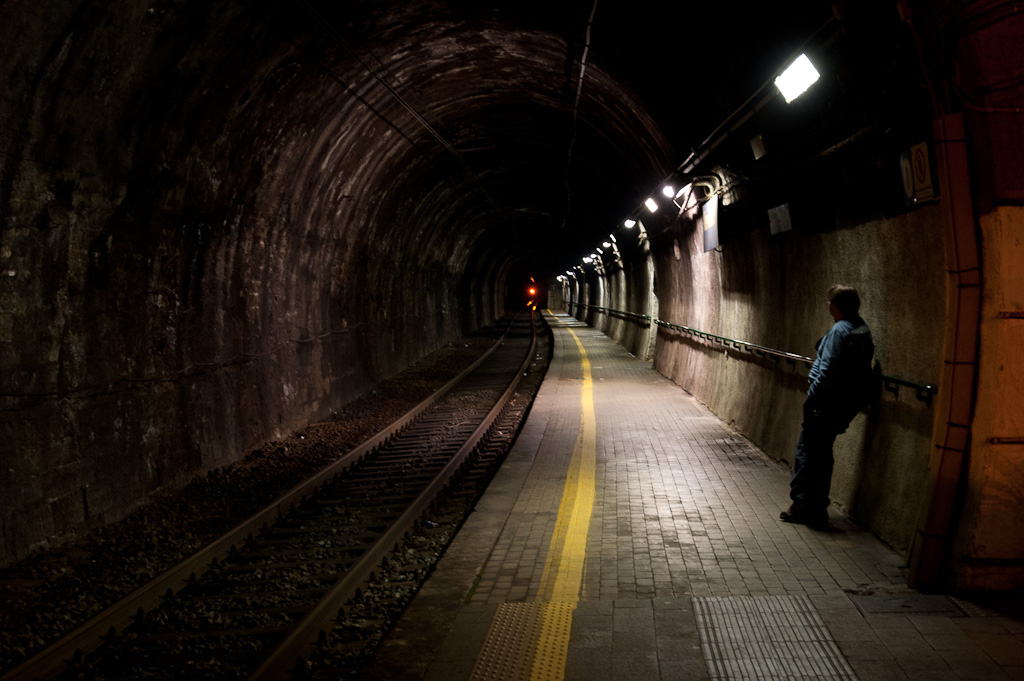A couple of weeks ago, in response to the comments about the launch of this site, I posted on Twitter that my goal for the new year was focus. Like many of us, I get too easily distracted by shiny things. Not just gear, though I suffer from that in spades, but by all of the ways to broadcast my work to all of you. This site—and the dissolution of several other sites/accounts—is my answer to that problem.
However, I think it's only a partial solution. A more complete answer is cultivating a broader perspective; viewing the world around me with a keener eye. In addition to being easily distracted, it's too easy for me to be drawn into responding to others' perspectives, rather than holding my own. I don't mean that I always know better than others, or that I shouldn't listen to other points of view, even if I'm pretty sure I disagree with them. In my opinion, listening to solid, thoughtful opposition is an essential ingredient to being a good human being, but there are times when I get drawn down a rabbit hole into a much narrower world; a world where I lose perspective.
(A short digression here, folks. For the love of Funk and Wagnalls, the word is lose, not loose. Look it up. This epidemic must be stopped.)
What was I talking about? Heading down rabbit holes and trying to keep perspective? Ah, right.
We do sometimes recognize when we're losing perspective. My Twitter feed is occasionally littered with the #firstworldproblem hashtag, meaning that person understands their problem is a pretty minor thing in the greater scheme of things. In a world where some people don't have any idea where their next meal is going to come from or where they're going to sleep tonight, it's a good idea to pay attention to just how small some of our problems are. We can get caught in a bubble of narrow perspective where these smaller problems can seem much larger, and when we limit ourselves to discussing it with people who mostly agree with us, it becomes an echo chamber where we only become more convinced we're doing the right thing. In the end, it leads to the well-known arguments of Mac vs. PC, Nikon vs. Canon, and more recently, gear vs. vision.
What does this have to do with photography? Well… a lot. Refusing to listen to people who disagree with you, or who at least have a different point of view, stunts your growth as a human being and as a photographer. You need to take all of what the world has to offer—good and bad—to really understand what you have to give it in return. A narrow perspective usually leads to a limited imagination and, of course, imagination is key to photography—or any art for that matter.
But a broader perspective is also important in the way we approach our use of photography. We talk a lot about how to convey intent in a photograph, but there's a much larger picture here (pun definitely intended). Author Wes Cecil asked all of the participants at ART, "Why this?" In other words, why do we photograph? Why spend our time on it? What are we trying to say as a human to other humans? If, as a photographer, your goal is to effect change, you must broaden your perspective of what photography is to you.
Focusing only on gear is a shallow pursuit. Focusing only on technique is a shallow pursuit. Focusing only on making money with your camera is a shallow pursuit. Our "passion", as it stands, cannot be just photography itself. Most great photographers—the ones who helped make significant changes in our lives, and the ones we remember—were obsessed with social, cultural, and political issues that affected them. They used photography to show the rest of us how they felt about it and to push for change. Lewis Hine, Dorothea Lange, Tim Hetherington, Peter Magubane, Donna Ferrato, and even Ansel Adams used photography as their chosen vehicle for change—the change they wanted to see in the world.
Many photographers have been ignored, banned, jailed, beaten, and even killed by people and societies who were afraid of what would happen when others saw the things that photographer was exposing, or who simply weren't ready to see it. These photographers didn't always expect to make these kinds of sacrifices and they certainly didn't go looking for them, but they continued their work in spite of the danger to themselves. Deciding whether film or digital is better or whether or not to use HDR was nowhere on their radar of things to worry about.
Edward Bulwer-Lytton famously wrote, "Beneath the rule of men entirely great, the pen is mightier than the sword." If a photograph is worth a thousand words, how much can it accomplish? If we want to change the world, we have to tell the stories that need to be told. We need to examine and understand the reasons we are making photographs, and then keep pushing ourselves to make the best photographs that carry out that purpose. We can't limit ourselves to a narrow perspective and fall into the rabbit hole of photography only for photography's sake. We, as photographers, don't really matter. Photography, as an art and a craft, doesn't really matter. It's the photographs that do.


